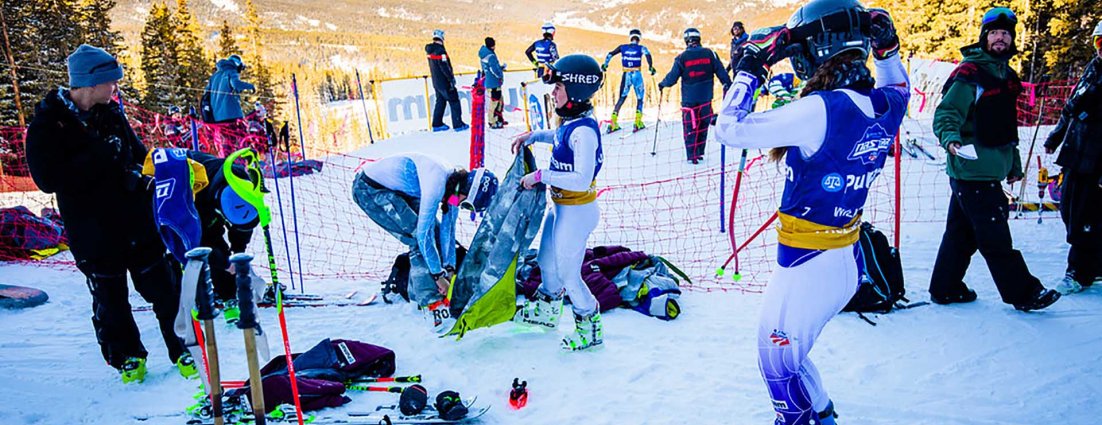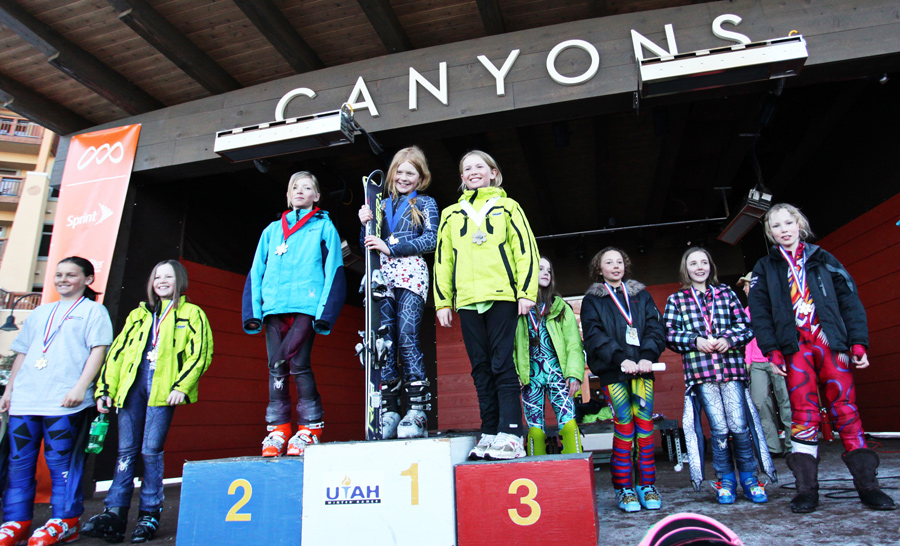Results-Based Development Performance
02.08.2017 | Ski Racing Staff

I frequently ask myself if the ski racing population as coaches, parents, athletes and programs detrimentally prioritizes results over athletic development. Make no mistake, our sport is clearly defined by performance results and they are critically important. But I wonder if and how those results might hinder or impede actual athletic development. In my role as USSA Eastern Alpine Youth Coordinator, I confront this quandary on a weekly and sometimes daily basis throughout the ski season.
What is more important for a NASTAR athlete – a podium finish or improving basic fundamental skills? I would never suggest that learning to compete is unimportant, but for the moment I have chosen to focus specifically on skill development. How often have we seen a family friend experience great success with a flawed skill set, turn 16 years old and suddenly hit a ceiling of performance? The results taper off and then the athlete and coaches face the difficult task of taking a few steps back to hopefully move forward again.
It is undeniable that results are necessary for selection to regional championships and national championships. But those results need to come as an end product of a fun, planned, and well-executed process to have lasting value. We cannot become fixated on a single outcome: the race result. We all need to become more vested in the process, the moment, and building solid lifelong fundamentals for our kids.
Does putting your 14 year old in competitions really allow them to reach their potential in the sport? A 14 year old who does not qualify for a regional championship may be aware of this quite early in the season depending on the state or division, and this pathway runs the risk of discouraging future participation or even skiing out to the end of the season.
This is why I question if we are actively encouraging solid fundamental skill development when our kids are focused on qualifying, especially so early on in many athletes’ seasons.
There are so many variables in play at the critical younger ages that make identifying “talent” and predicting future performance seemingly impossible. Having success, however we define it, is great and should be celebrated, but not at the expense of athletic development. Being able to remain present and in the moment with our athletes as they develop an athletic, balanced position and kinesthetic awareness should always trump the result.

The results will eventually be a by-product of the solid fundamental skills our skiers develop, and our athletes will draw upon those skills to unlock their own individual potentials. What do I mean by staying present and in the moment? I mean that we as coaches should create training environments that allow kids to specifically focus on the task at hand, whether it be a training course, drill station or free ski run. When executing the task, the athlete is able to be singular in his or her focus on that specific task without distraction. When the skier has completed the focused task, he or she can then re-engage their teammates, friends, and parents as they typically do. This is a reasonable expectation for kids under the age of 14 and can still be part of an experience that emphasizes the fun factor all while instilling a skill that will be vital to future performance in their racing careers.
We need to recognize the daily, weekly, monthly and seasonal choices we have and what effect each might have on athletic development. Athletes in these age groups may have drastically different opportunities and time on snow, and this will certainly affect skill development. Some ski in full-time programs, some are simply excited to train any chance they get, while others may get to the mountain only on the weekends. One of those systems is not superior to another. Coaches need to accept the challenge of creating and executing programs across varying levels of participation in younger age classes to encourage continued involvement in the sport. Regardless of the amount of time our kids have on snow, we must be prepared to provide the best environment we can when they do show up.
About the author: Former Mt. Mansfield coach Tom Ashworth of Vermont is currently the USSA Eastern Region Youth Coordinator.